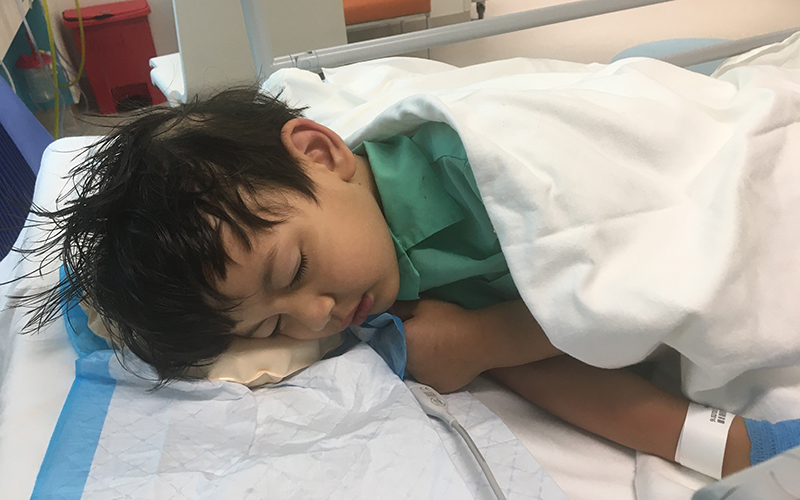Search

Charlie, 6, has ended up in hospital twice with invasive Strep A infection over his short lifetime – the first time when just three years old.

The urgency for a world-first respiratory syncytial virus vaccine is at an all-time high.
Hannah Peter Moore Richmond OAM BSc (Hons) GradDipClinEpi PhD MBBS MRCP(UK) FRACP Head, Infectious Diseases Research Head, Vaccine Trials Group 08
Christopher Blyth MBBS (Hons) DCH FRACP FRCPA PhD Centre Head, Wesfarmers Centre of Vaccines and Infectious Diseases; Co-Head, Infectious Diseases
Respiratory syncytial virus (RSV) is a major cause of acute lower respiratory infections globally in children under five years. With the development of RSV prevention strategies, understanding risk factors and relation to age and population is useful for deciding the type of program implemented.
Burkholderia cepacia complex causes life-threatening respiratory infections. Here, a bacteriophage with activity against B. cenocepacia was isolated from wastewater. It has a genome size of 70,144 bp and has the taxonomic classification Irusalimvirus. It has no genes associated with lysogeny, bacterial resistance, or virulence.
Western Australia experiences multiple climatic zones, influencing the epidemiology of respiratory viruses. We aimed to estimate the true incidence of respiratory syncytial virus and influenza hospitalizations across these different climatic regions using predictive modelling.
Early-life immune development is a critical factor in predicting the risk of childhood respiratory infections, asthma, and poor vaccine responses. Identifying immune endotypes that predispose children to these conditions could lead to the development of predictive biomarkers and early interventions, potentially improving long-term health outcomes.
Australia's active vaccine safety surveillance system AusVaxSafety monitors a number of vaccines, including Arexvy, by reporting on solicited adverse events following immunisation (AEFI) through an online survey sent to vaccinees 3 days post-vaccination as previously described.3 Here we report on survey responses from adults aged ≥60 years receiving Arexvy at primary healthcare practices or pharmacies, who responded to the survey by day 7 post-vaccination.
The abstract screening process of systematic reviews can take thousands of hours by two researchers. We aim to determine the reliability and validity of Research Screener, a semi-automated abstract screening tool within a systematic review on non-specific and broader effects of respiratory vaccines on acute lower respiratory infection hospitalisations and antimicrobial prescribing patterns in young children.
